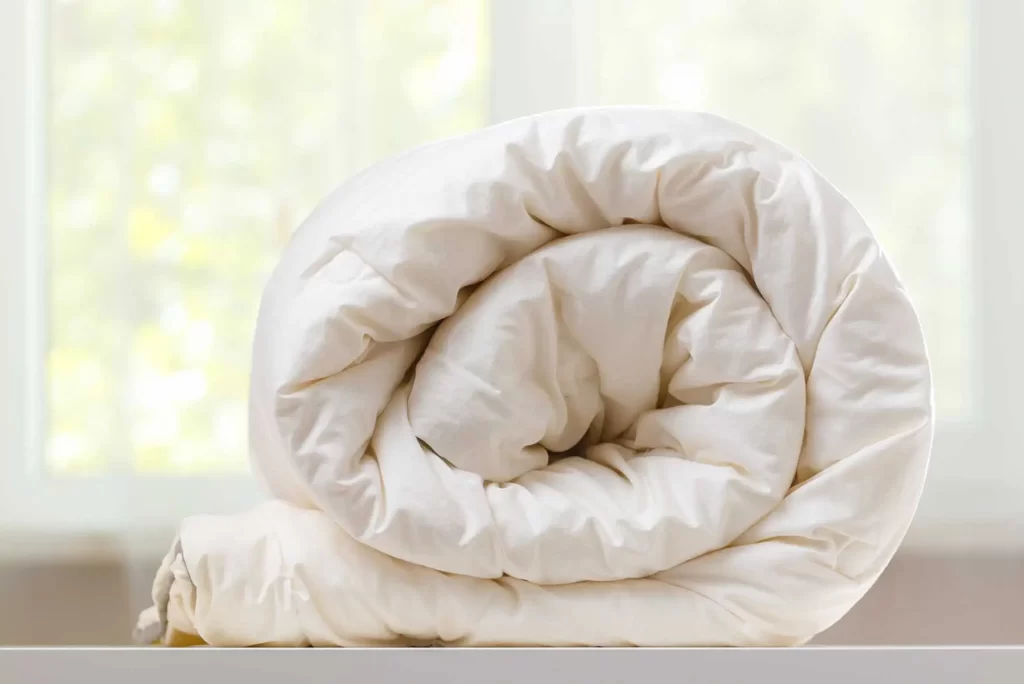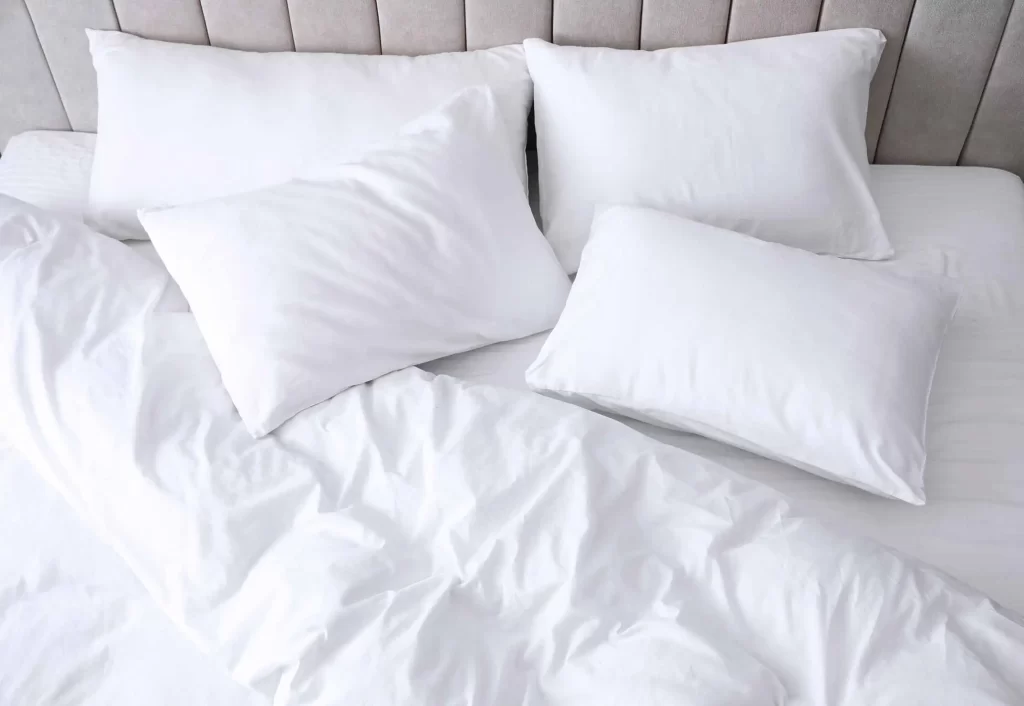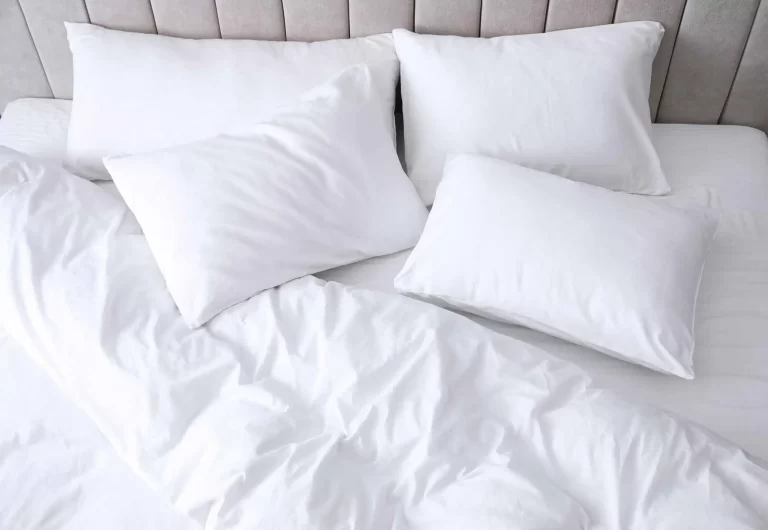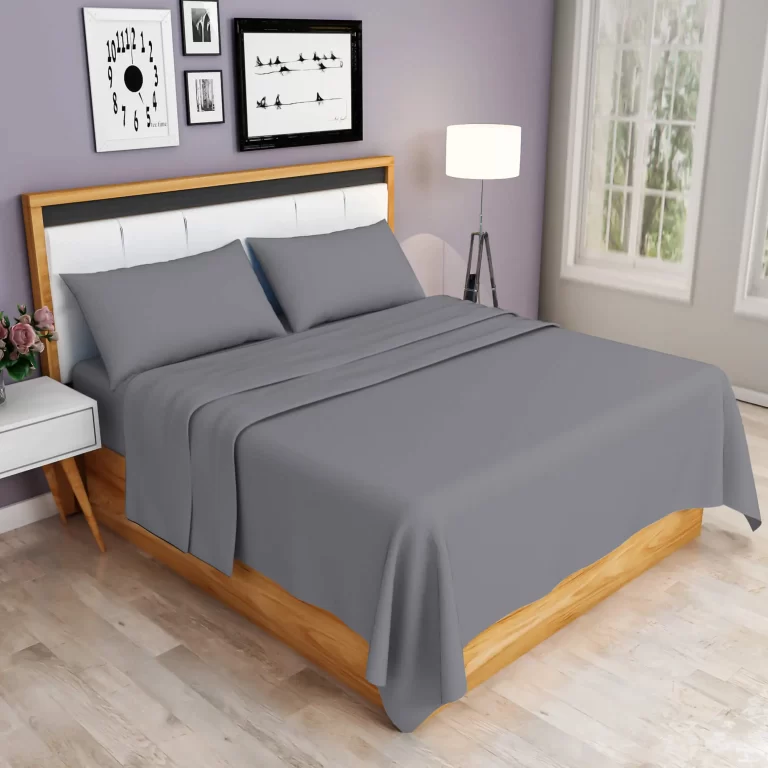Your Complete Guideline on Anti Allergy Duvets
Are you suffering from sneezing, itchy eyes, runny nose and other allergy-like symptoms? Due to the weather, allergies are common and thought to affect 1 in 4 people at some point in life in the UK. Allergy sufferers are particularly sensitive to dust mites, feathers, and other allergens that can accumulate in bedding and mattresses.
Luckily, there are anti allergy duvets available on the market that can help alleviate your symptoms.
Stay with us until the end to gain all the information you need about anti allergy duvets and how to overcome that problem.
But first, why are duvets a source of allergic reactions?

Why Your Duvet Might Cause Allergy?
All these factors can contribute to an uncomfortable night’s sleep for those with allergies or sensitivities.
Symptoms of Allergic Reactions Due to Duvet

Symptoms of an allergic reaction to a duvet can include sneezing, itching, coughing, watery eyes, runny nose, and rashes. Some people may experience difficulty breathing or even an asthma attack due to allergens in the bedding.
It is important to note that these symptoms may only be present a few hours after sleeping on the duvet, as it takes time for the allergens to trigger a reaction. If you suspect you are allergic to your duvet, it is best to get tested by an allergist as soon as possible.
If you have confirmed allergies to your duvet, choosing one specifically designed to prevent allergens from settling in the bedding is essential.
Understanding Anti Allergy Duvets

Anti allergy duvets are specifically designed to help prevent allergic reactions. An anti-allergy duvet will contain unique materials to keep dust mites, pollen and other allergens out of your bedding. This can significantly reduce the symptoms of an allergic reaction and provide much-needed relief.
All these materials have been treated to reduce the number of allergens they can carry and trap, which makes them an excellent choice for anyone suffering from allergies.
Anti allergy duvets effectively protect you from allergies whether you choose synthetic or natural materials.
What Types of Anti Allergy Duvets are Available?

There are various types of anti allergy duvets available. Each type has unique benefits, so knowing your needs is essential before purchasing.
One popular type of anti allergy duvets are made with synthetic fibres.
Another type of anti allergy duvets are filled with natural fibres such as wool or down. Wool is especially good at providing insulation, while down provides extra warmth without feeling bulky.
Natural fibre duvets are highly breathable and can effectively control allergy symptoms.
Finally, some anti allergy duvets contain unique treatments like hypoallergenic coatings or chemical additives. These duvets provide additional protection from allergens and dust mites by blocking their passage into the bedding.
No matter what type of anti allergy duvets you choose, it’s important to remember that regular cleaning and maintenance are vital for keeping the fabric free of allergens.
Regular washing and drying with a gentle detergent will help ensure your duvet stays clean and allergen-free.
Advantages & Disadvantages of Anti Allergy Duvets

When it comes to your comfort, finding the right duvet is essential. If you have allergies, an anti-allergy duvet may help reduce your symptoms. Consider some of these duvets’ benefits and disadvantages before buying one.
Advantages:
Disadvantages
How to Choose Duvets for Anti Allergy?

When selecting an anti-allergy duvet, evaluate the size of your bed and the level of warmth needed. Some anti-allergy duvets are lightweight and provide warmth without being too heavy or hot.
Others are thick and heavy, providing extra warmth for those needing it. Different brands offer different durability and longevity, so consider the material and construction before purchasing.
In addition, think about the ease of cleaning and care. Some duvets can be machine washed, while others require dry cleaning or hand washing.
Make sure that you choose one that fits within your budget and will provide you with the comfort and relief you need. In addition to using anti-allergy duvets, you can take a few other steps to reduce the risk of an allergic reaction.
How to Keep Your Bedroom Clean of Allergens?

In addition to the choice of a safe and anti-allergy duvet, it is also essential to keep your bedroom and bedding clean.
First, you should regularly vacuum and dust your bedroom to remove any allergens that may be present. It’s also essential to launder your sheets and blankets regularly to remove dust mites, pet dander, and other allergens.
Consider purchasing allergen-proof mattress covers and pillowcases to help keep your bed clean and free of dust and pollen.
Finally, avoid smoking indoors, as this can also cause allergic reactions. Taking proper care of your anti-allergen duvet is essential to ensure it lasts a long time and works effectively.
To clean the duvet, use a gentle cycle on the washing machine and ensure it is completely dried before using it again. You can opt for an additional rinse cycle and use an allergen-reducing laundry detergent to reduce allergens.
It is also important to shake the duvet out often, preferably outdoors, to eliminate any dust or debris trapped inside.
Furthermore, avoid letting pets sleep on your anti-allergen duvet, as their fur may contain allergens that can cause reactions.
Additionally, try to limit the use of fabric softener when cleaning your duvet, as this can reduce its effectiveness in trapping allergens.
Finally, inspect the duvet often for any wear and tear that may occur over time and replace it if necessary.
Tips for Bedrooms with Sensitive Sleepers
For those who suffer from allergies, creating a bedroom environment that minimises the triggers for allergic reactions is essential.
By following these simple tips, you can ensure your bedroom is free from allergens and create a comfortable and healthy sleeping environment for yourself or your family members who suffer from allergies.
Frequently Asked Questions
Final Takeaway
When it comes to allergy prevention, an anti-allergen duvet is a great solution. Not only will it help prevent symptoms from occurring, but it can also make your sleep experience more comfortable and enjoyable.
Make sure you consider the type of material you’re using and the fill power of the duvet when choosing the right one for you.
Furthermore, regularly clean and maintain your anti-allergy duvet to ensure its effectiveness. It would help if you also looked into changing your bedroom environment to accommodate those with sensitive allergies better.
Consider cleaning your bedding regularly and using a vacuum cleaner with a high-efficiency particulate air filter to reduce the risk of airborne allergens in the bedroom.
Lastly, if you experience any signs of allergic reactions, contact your doctor immediately for medical advice.







